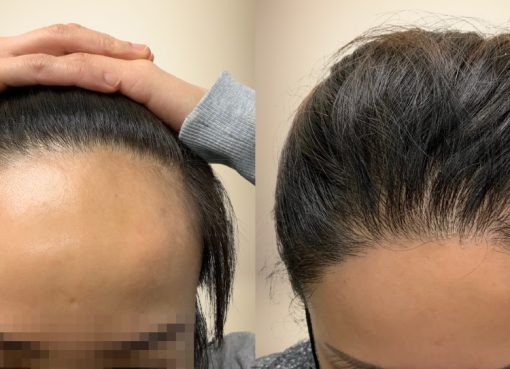Is hair loss more prone to young woman in the philippines?

Hair loss can occur in women of all ages, but certain types of hair loss may be more common in younger women. Understanding the causes and types of hair loss can help explain why younger women may be more prone to experiencing hair loss.
1. **Androgenetic Alopecia**: Also known as female pattern hair loss, androgenetic alopecia is the most common type of hair loss in women. It is characterized by thinning of the hair, primarily on the top and crown of the scalp. While it can occur at any age, it is more common in women who are younger, particularly in their 20s and 30s. Genetics plays a significant role in androgenetic alopecia, and younger women with a family history of hair loss are more likely to experience it.
2. **Hormonal Changes**: Hormonal changes can contribute to hair loss in women, and younger women may experience more frequent and significant hormonal fluctuations. For example, hormonal changes during puberty, pregnancy, and menopause can all affect hair growth cycles and lead to temporary hair loss. Conditions such as polycystic ovary syndrome (PCOS), which often affects younger women, can also cause hormonal imbalances that contribute to hair loss.
3. **Stress**: Younger women may be more susceptible to stress due to various factors such as academic pressure, career demands, and relationship issues. Chronic stress can disrupt the hair growth cycle and lead to a type of hair loss called telogen effluvium. This condition causes a large number of hair follicles to enter the resting phase simultaneously, resulting in increased shedding and thinning of the hair.
4. **Diet and Nutrition**: Poor diet and nutritional deficiencies can contribute to hair loss in women of all ages. Younger women, especially those who may be following restrictive diets or have erratic eating habits, may be more prone to nutritional deficiencies that can impact hair health. For example, iron deficiency anemia is a common cause of hair loss in women and can be more prevalent in younger women due to menstrual blood loss.
5. **Autoimmune Conditions**: Some autoimmune conditions, such as alopecia areata, can cause hair loss in younger women. Alopecia areata is characterized by sudden hair loss in small, round patches on the scalp or other parts of the body. While the exact cause is unknown, it is believed to be an autoimmune disorder where the immune system mistakenly attacks the hair follicles.
6. **Hair Styling Practices**: Younger women may be more likely to engage in damaging hair styling practices, such as frequent heat styling, tight hairstyles, and chemical treatments. These practices can weaken the hair shaft and contribute to hair breakage and thinning over time.
In conclusion, while hair loss can occur in women of all ages, younger women may be more prone to certain types of hair loss due to factors such as genetics, hormonal changes, stress, diet, autoimmune conditions, and hair styling practices. Understanding these factors and seeking appropriate hair restoration treatment and care can help manage hair loss and promote healthy hair growth.



